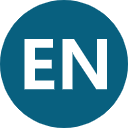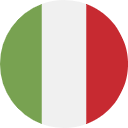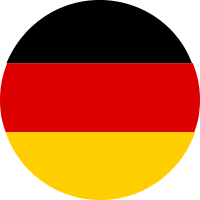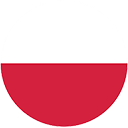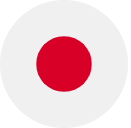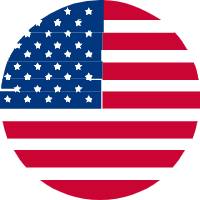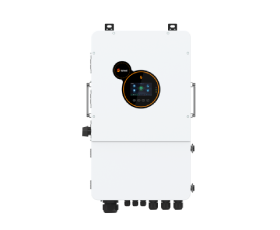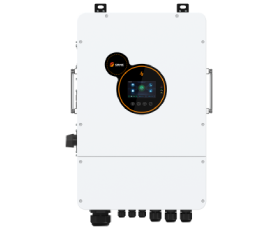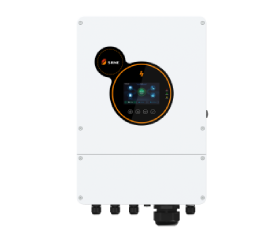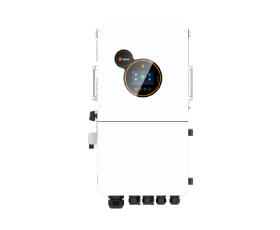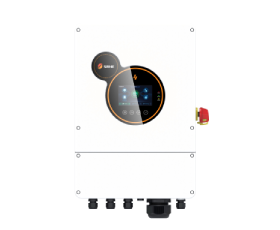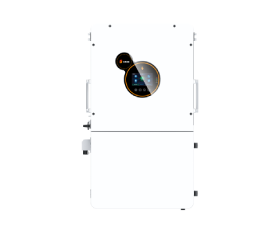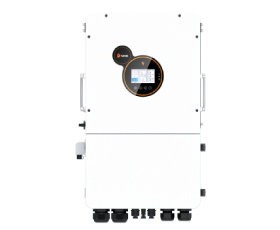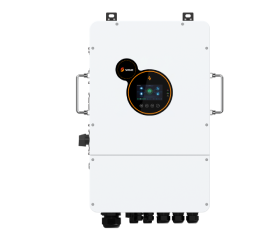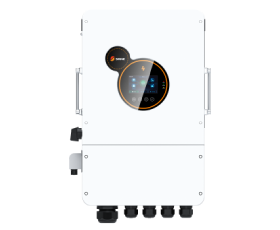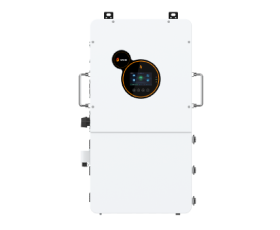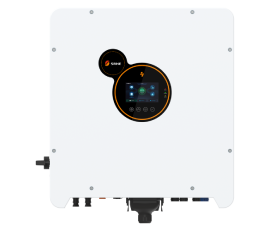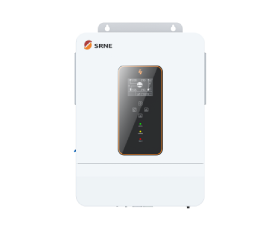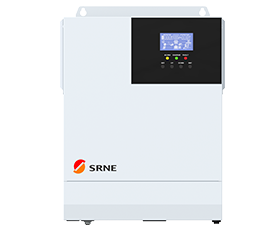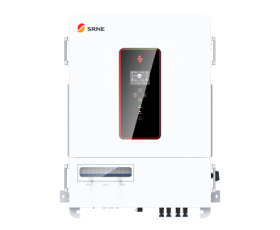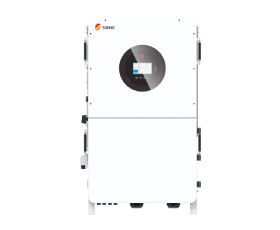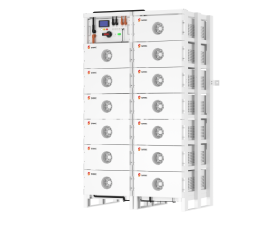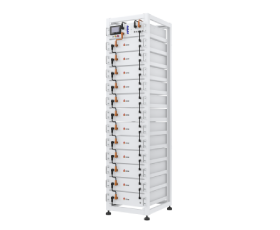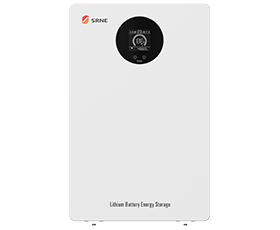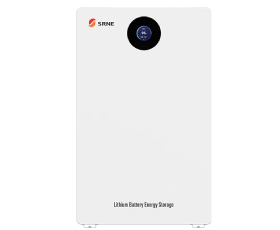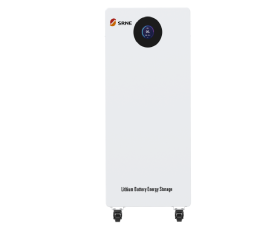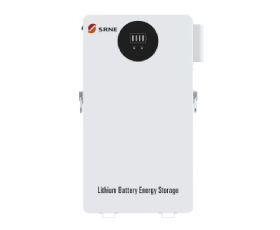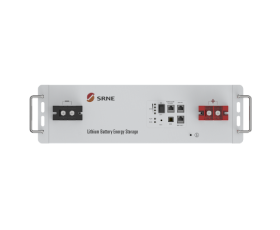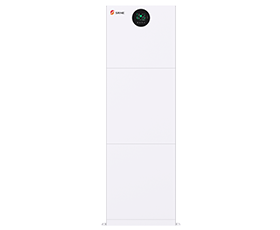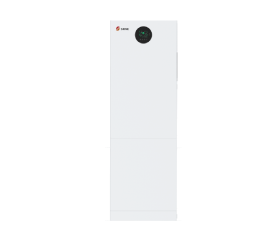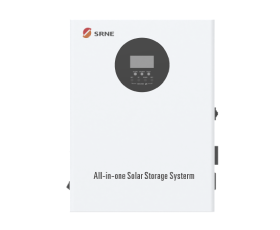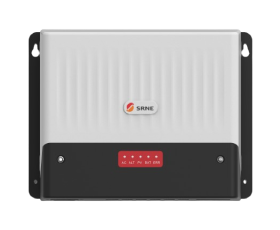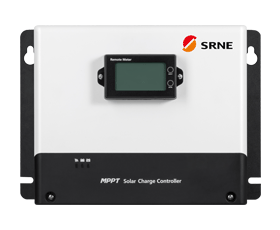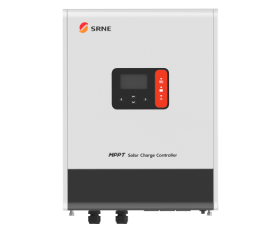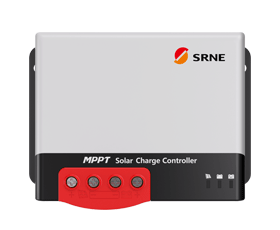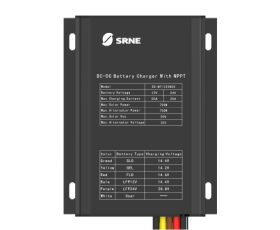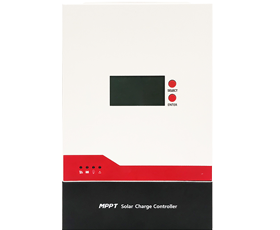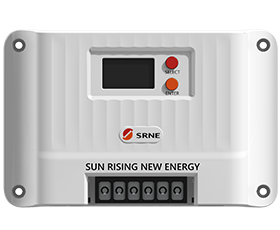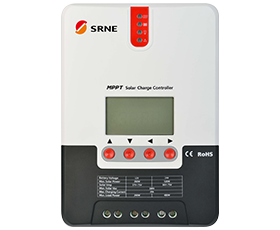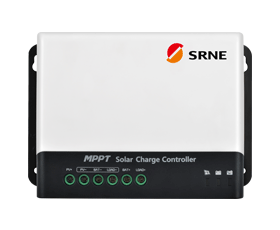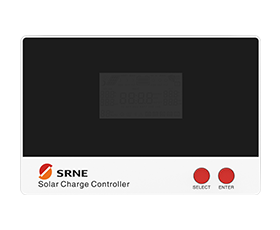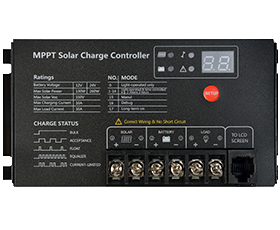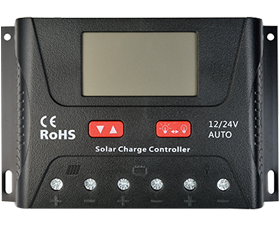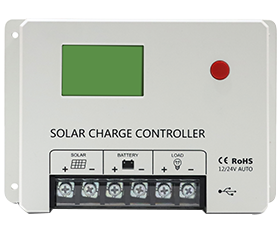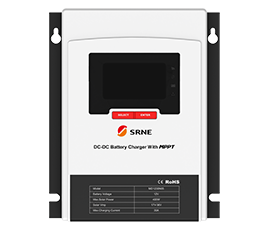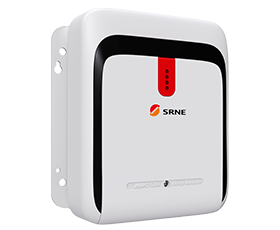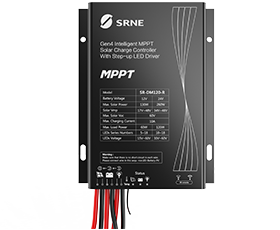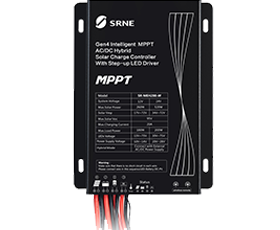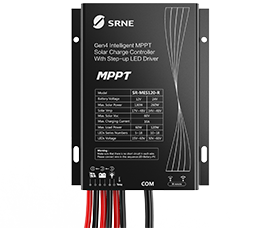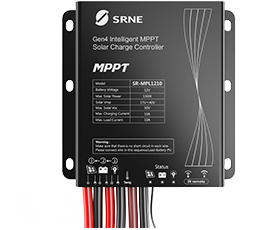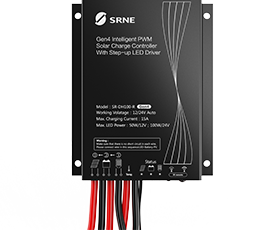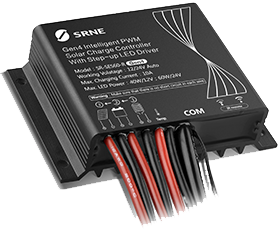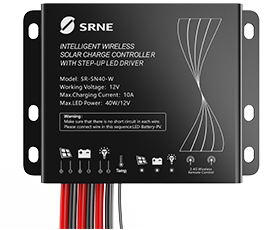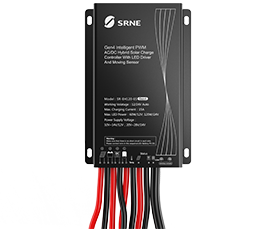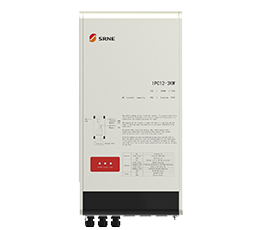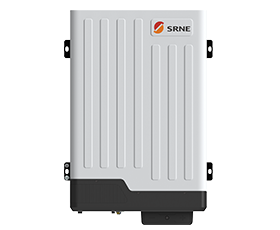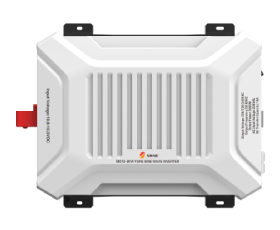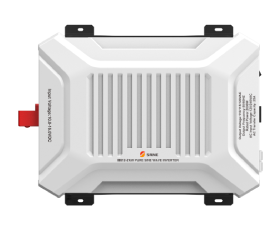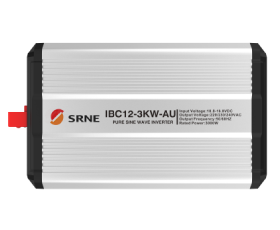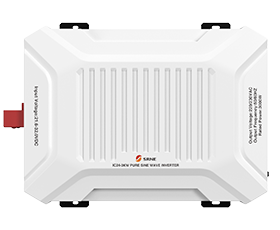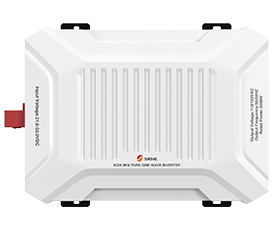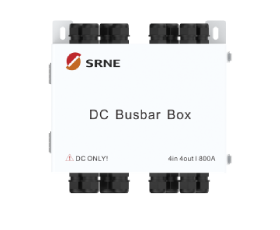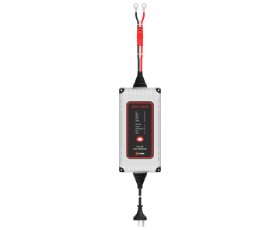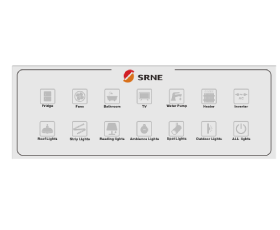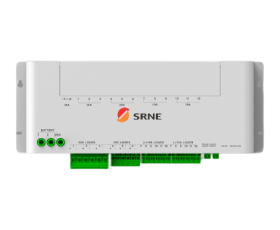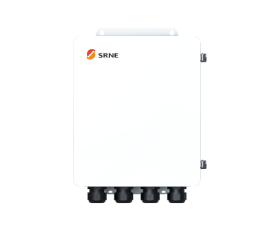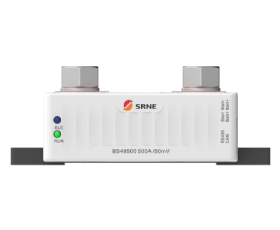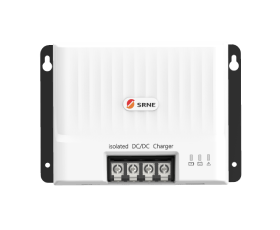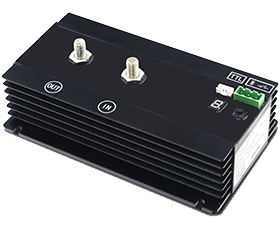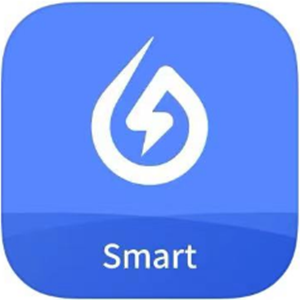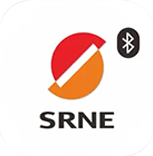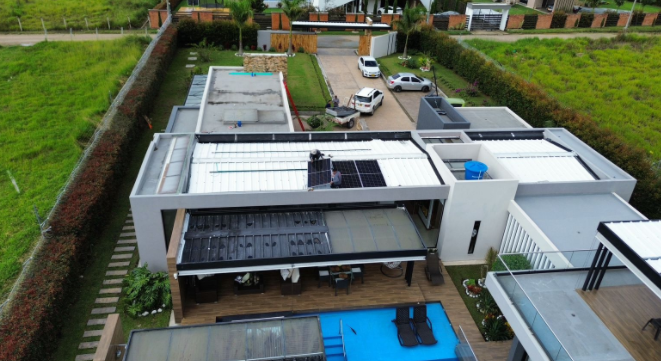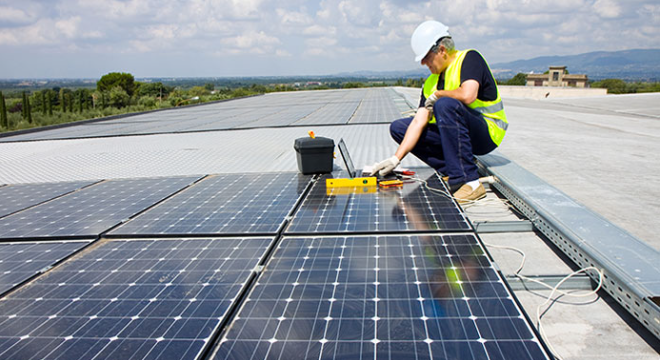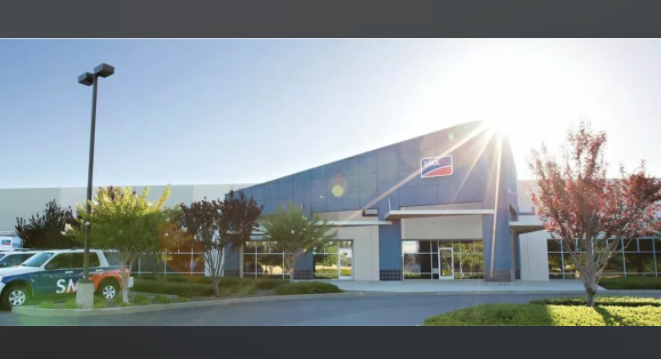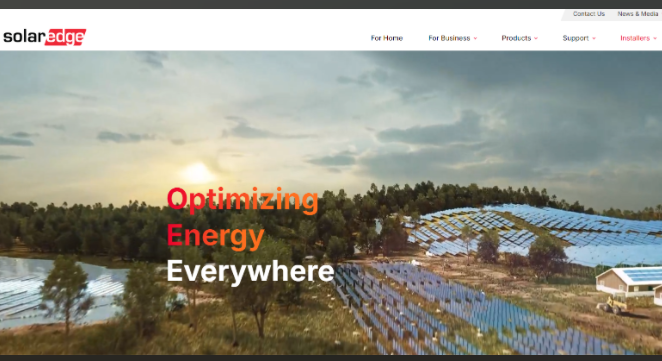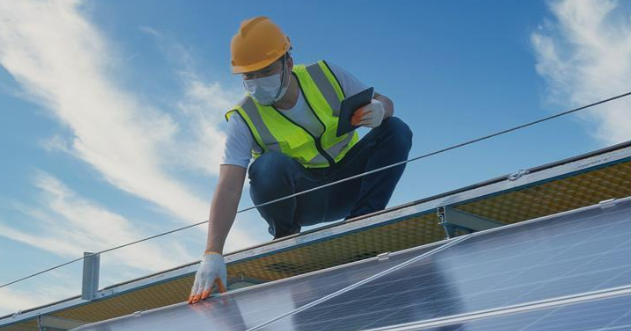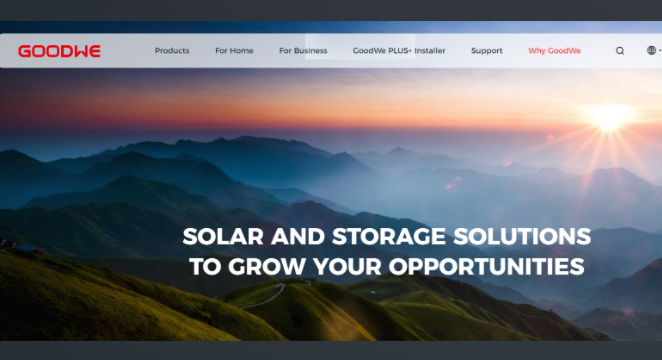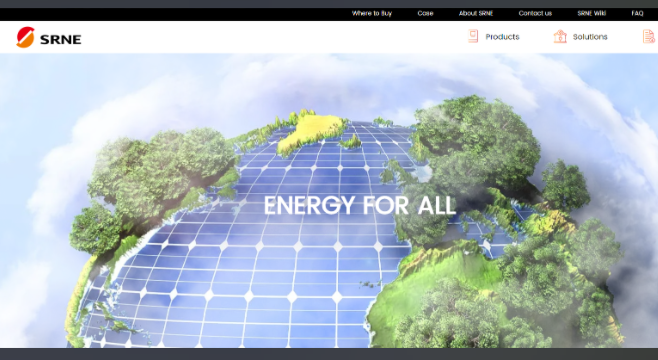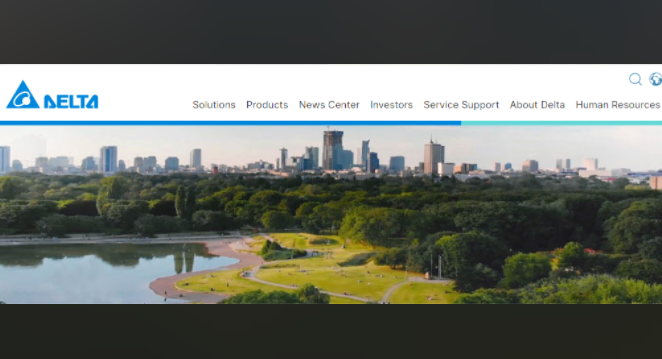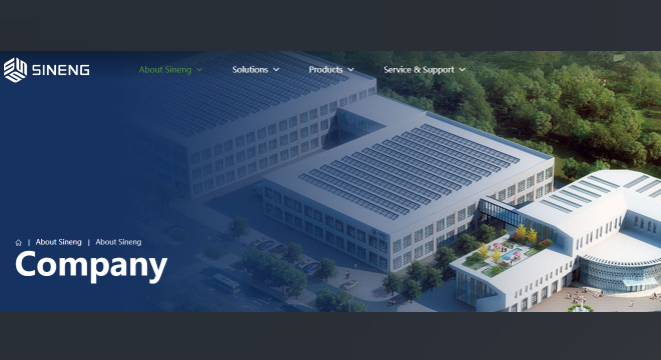top 10 solar inverter manufacturers in the world(2025)
With the rapid growth of the solar market, many leading companies are innovating and shaping the future of solar technology. In this article, we explore the top 10 solar inverter manufacturers to watch in 2025, each contributing to the global shift toward smarter, more efficient energy systems.
What Is a Solar Inverter
A solar inverter is a key component in any solar power system, converting DC electricity from solar panels into AC power used by most appliances and electrical equipment. This transformation is essential, as over 90% of devices worldwide operate on AC. Modern inverters go beyond basic conversion, offering features like real-time monitoring, fault detection, battery integration, and grid synchronization.
High-efficiency models can improve energy output by 2–6%, while hybrid inverters with storage capabilities can cut electricity costs by up to 60% through time-of-use optimization. Remote monitoring allows users to track performance and environmental benefits, making inverters essential for optimizing both savings and system reliability.
As demand for solar energy grows, leading brands like Huawei, Sungrow, SolarEdge, and Enphase are shaping the future of solar technology. These companies provide advanced solutions that cater to a variety of needs, from residential to large-scale industrial applications. Let’s explore the top 10 solar inverter brands to watch in 2025, each contributing to the global shift towards smarter, more efficient energy systems.
Types of Solar Inverters
Choosing the right solar inverter depends on factors like system size, site layout, shading, and whether energy storage is involved. Here are the four main types, each tailored to specific needs:
String Inverters
The most widely used option for residential and small commercial systems. Multiple panels are connected in series to a single inverter. While cost-effective and easy to maintain, performance can drop if one panel underperforms due to shading or faults.
Best suited for:
Locations with uniform sun exposure
Homeowners or businesses looking for a simple, low-cost setup
Central Inverters
Scaled-up versions of string inverters, these are used in large commercial or utility-scale systems. They manage power from hundreds of panels, typically housed in one centralized cabinet. Central inverters offer high efficiency and reduced per-watt cost at scale.
Best suited for:
Solar farms and large rooftop or ground-mount installations
Industrial users needing high-capacity performance
Microinverters
Installed on individual panels, microinverters perform DC-to-AC conversion right at the source. This allows each panel to operate independently, maximizing output in shaded or uneven roof layouts and enabling panel-level monitoring.
Best suited for:
Residential rooftops with shading or multi-angle layouts
Systems where monitoring or future panel expansion is important
Hybrid Inverters
Also known as multi-mode inverters, these integrate solar production, battery storage, and sometimes even generator input. They manage energy flow intelligently, enabling backup power, self-consumption, and time-of-use optimization.
Best suited for:
Homes or businesses using solar plus batteries
Off-grid or grid-tied systems requiring backup or peak-shaving
Users seeking greater energy autonomy and savings
Top 10 Solar and Power Inverter Manufacturers to Watch in 2025
Rank | Brand | Founded | Core Focus | Primary Applications |
1 | Huawei | 1987 | AI-powered string inverters, integrated ESS | Residential, Commercial, Utility-scale |
2 | Sungrow | 1997 | Hybrid inverters, central inverters, floating PV | C&I rooftops, Utility plants, Floating systems |
3 | SMA | 1981 | Grid-tied and off-grid inverters | Residential, Commercial, Remote Microgrids |
4 | SolarEdge | 2006 | Power optimizers, smart inverters, monitoring | Residential rooftops, Small C&I systems |
5 | Growatt | 2011 | Hybrid inverters, residential storage systems | Residential, Small C&I, Off-grid homes |
6 | GoodWe | 2010 | Hybrid inverters, cloud-based energy platforms | Residential, Energy Storage Systems (ESS) |
7 | SRNE | 2009 | Off-grid & hybrid solar systems | Rural Homes, Backup Systems, Telecom, Clinics |
8 | Tigo Energy | 2007 | Module-level optimizers, rapid shutdown | Residential, Shaded rooftops, Retrofits |
9 | Delta Electronics | 1971 | Industrial-grade inverters, power electronics | Commercial, Industrial Plants, Microgrids |
10 | Sineng Electric | 2012 | Utility-scale inverters, PV+ESS integration | Solar Farms, Grid-scale Storage, Utilities |
1. Huawei (FusionSolar)
Headquarters: Shenzhen, China
Founded: 1987
Profile:
Huawei, a global leader in ICT, has expanded its innovation into the solar industry under the FusionSolar brand. By integrating artificial intelligence, digital technologies, and power electronics, Huawei has created a smart energy ecosystem that combines solar generation with intelligent control and energy storage. With presence in over 170 countries and strong positions in global inverter rankings, Huawei continues to push the boundaries of smart PV through significant R&D investment, accounting for over 20% of its annual revenue.
Focus Areas:
Huawei’s efforts focus on smart PV solutions, intelligent inverters, and energy storage integration. Its systems are built to enhance energy production, improve safety, and enable real-time monitoring. AI-driven features such as fault prediction and smart diagnostics ensure stability and higher availability. Through seamless integration of batteries, Huawei also supports energy self-use, load shifting, and backup functionality.
Flagship Solutions:
The SUN2000 Series is Huawei’s leading inverter line, offering multi-MPPT tracking, AI-powered fault detection, and arc fault protection. It’s designed for high-efficiency performance and proactive safety.
The Smart PV + ESS Platform combines solar generation with storage and energy management. Users can optimize energy usage, manage peak loads, and monitor systems remotely via the FusionSolar app and EMS.
Deployment Scenarios:
Huawei’s solutions are widely used in residential rooftops for energy savings and self-consumption, in commercial and industrial settings for system scalability and intelligent control, and in utility-scale plants for grid support and low operational costs. Its technology supports diverse needs with a focus on long-term reliability and smart automation.
2. Sungrow
Headquarters: Hefei, China
Founded: 1997
Profile:
Sungrow is a globally recognized solar and power inverter manufacturer known for its strong financial stability and broad project experience. With over 740 GW of installed capacity worldwide, the company has earned a reputation for delivering reliable and adaptable solar power solutions. Backed by decades of renewable energy expertise, Sungrow develops cutting-edge inverters, energy storage systems, and grid-support technologies. The company maintains a strong focus on research and development, with a significant portion of its workforce dedicated to innovation and product optimization.
Focus Areas:
Sungrow’s core competencies lie in hybrid inverter technology, utility-scale PV systems, and integrated energy storage. It designs flexible products that can operate in a wide range of environments—from homes to massive solar farms. In recent years, the company has also led advancements in floating PV installations, enabling solar power deployment on water surfaces. Its systems are engineered for high efficiency, adaptability, and seamless integration with grid infrastructure.
Flagship Solutions:
Sungrow offers Hybrid and Central Inverters that can scale from residential rooftops to large-scale solar fields. These inverters feature high conversion efficiency, robust protection features, and intelligent monitoring.
In addition, its Floating PV + ESS Solutions support renewable energy projects built on water, combining solar modules and storage into modular, easy-to-deploy systems.
Deployment Scenarios:
Sungrow products are widely used in commercial and industrial installations, ground-mounted solar farms, and floating PV projects. Its solutions are particularly suited for users who require scalable system architecture, high environmental tolerance, and grid-tied energy performance. Sungrow’s flexible portfolio allows developers to design efficient systems across a variety of landscapes and climates.
3. SMA Solar Technology
Headquarters: Kassel, Germany
Founded: 1981
Profile:
SMA is a pioneering German brand with over 40 years of experience in solar and power inverter technology. Known for its engineering precision and reliability, SMA has developed a global footprint in both grid-tied and off-grid solar applications. As one of the earliest companies to specialize in photovoltaic system integration, SMA delivers modular and scalable inverter systems tailored for diverse environments. Its solutions are especially valued in regions with strict grid regulations and high technical requirements. SMA is also publicly listed, maintaining transparency and long-term financial stability.
Focus Areas:
The company focuses on decentralized energy systems, grid services, and off-grid resilience. Its products are designed to offer high compatibility with various PV configurations and energy management systems. SMA emphasizes digital integration, enabling users to monitor, control, and optimize system performance remotely. Its off-grid technologies are particularly strong, supporting energy access in rural and remote regions with minimal infrastructure.
Flagship Solutions:
SMA’s Sunny Tripower series is designed for commercial and industrial-scale use, offering high conversion efficiency, flexible installation options, and advanced grid integration.
The Sunny Island series supports off-grid and hybrid energy systems, enabling energy independence with seamless switching between solar, battery, and backup sources.
Deployment Scenarios:
SMA solutions are widely adopted in residential solar systems, industrial facilities, rural electrification projects, and energy-autonomous communities. Its inverters are ideal for users seeking high durability, European engineering standards, and strong grid/off-grid versatility.
4. SolarEdge
Headquarters: Herzliya, Israel
Founded: 2006
Profile:
SolarEdge is a global innovator in smart energy technology, best known for revolutionizing the inverter market through its DC-optimized architecture. The company introduced power optimizers and panel-level monitoring to the industry, enabling solar installations to achieve higher output even in complex or shaded environments. With millions of systems installed across more than 130 countries, SolarEdge has become a preferred brand for smart residential energy and commercial projects that demand performance, safety, and visibility.
Focus Areas:
SolarEdge focuses on module-level power electronics (MLPE), intelligent inverter design, and integrated solar-plus-storage systems. The company emphasizes precise control at the panel level, enhancing system yield and enabling granular data tracking. Its technologies also prioritize safety features such as rapid shutdown and arc fault protection, meeting strict building codes and grid compliance standards.
Flagship Solutions:
The HD-Wave Solar and Power Inverter is a compact, lightweight solution that delivers high conversion efficiency with advanced digital processing. It is designed to work seamlessly with SolarEdge optimizers for maximum energy harvest.
The StorEdge Platform combines solar generation, battery storage, and energy management into a unified system, allowing users to store excess power for self-use and backup during grid outages.
Deployment Scenarios:
SolarEdge solutions are ideal for residential rooftops, especially those with partial shading or irregular layouts. They are also well-suited for small commercial installations where real-time monitoring, compliance, and energy optimization are priorities. The platform’s modularity and safety features make it particularly attractive to installers and building owners in developed markets with strict safety codes.
5. Growatt
Headquarters: Shenzhen, China
Founded: 2011
Profile:
Growatt is a fast-growing solar power inverter manufacturer recognized for combining affordability with reliable performance, especially in residential and emerging-market applications. Since its founding, the company has expanded into over 160 countries, offering a full range of PV inverters, energy storage systems, and smart energy management solutions. Growatt’s flexible product line and customer-friendly design have earned it strong adoption in both developed and developing solar markets. The brand emphasizes accessibility, ease of use, and rapid deployment across various system sizes.
Focus Areas:
Growatt specializes in residential solar power inverters, hybrid energy systems, and off-grid power solutions. It focuses on providing user-centric technology that supports solar-plus-storage integration, remote monitoring, and seamless compatibility with battery systems. The company also invests in digital energy tools, offering cloud platforms and mobile apps for real-time system insight and control. With a presence in weak-grid and rural regions, Growatt continues to adapt its offerings for flexible deployment and grid resilience.
Flagship Solutions:
The MIN and MIC Series are compact residential inverters designed for ease of installation, high conversion efficiency, and reliable day-to-day performance.
For solar + battery setups, the SPF Hybrid Series supports both on-grid and off-grid operations, making it ideal for areas with unstable power supply or energy access challenges.
Deployment Scenarios:
Growatt solutions are widely used in residential rooftops, rural electrification, and small-scale commercial systems. The brand is especially favored by users seeking cost-effective systems with intuitive interfaces and mobile connectivity. Its hybrid inverters also provide strong value in off-grid villages, backup power applications, and solar-powered homes in regions with limited utility infrastructure.
6. GoodWe
Headquarters: Suzhou, China
Founded: 2010
Profile:
GoodWe is a publicly listed company and one of the most prominent players in the smart energy industry. With a global presence spanning over 100 countries, the company provides solar power inverters and energy storage systems for both residential and commercial markets. GoodWe has built its reputation by combining efficient power electronics with intelligent software platforms, creating solutions that are not only reliable but also easy to monitor and control. Its systems are widely used by installers and EPC contractors for grid-connected and hybrid solar projects.
Focus Areas:
The company focuses on hybrid inverters, digital energy platforms, and intelligent battery storage integration. GoodWe’s solutions are designed to optimize energy usage through time-of-use strategies, load shifting, and intelligent dispatch. Its cloud-based SEMS (Smart Energy Management System) platform enables users to track performance, energy flow, and system health remotely, making it ideal for users seeking an all-in-one solar management experience.
Flagship Solutions:
The EH, ET, and BT Series hybrid inverters are designed for residential and small commercial use, offering high efficiency, seamless battery integration, and smart load control.
The SEMS Platform is a cloud-based monitoring and analytics tool that provides real-time insights into solar system operation, battery usage, and grid interaction.
Deployment Scenarios:
GoodWe’s inverters are commonly deployed in residential solar + storage systems, emerging markets with unstable grids, and distributed commercial applications. Its hybrid and smart energy solutions offer flexibility for self-consumption, peak shaving, and backup power, helping end-users achieve greater energy independence.
7. SRNE Solar
Headquarters: Shenzhen, China
Founded: 2009
Profile:
SRNE is a high-tech enterprise specializing in off-grid and hybrid photovoltaic solutions. With a strong foundation in research and development, SRNE has grown into a globally recognized brand, especially in regions with unreliable grid access. The company offers a full suite of solar charge controllers, hybrid inverters, and integrated PV-battery systems, serving applications that demand rugged performance and energy self-sufficiency. Its products are exported to over 150 countries and regions.
Focus Areas:
SRNE focuses on off-grid solar power, charge controllers, and hybrid energy storage systems. The company excels in enabling energy access in remote or infrastructure-poor areas. Its products emphasize intelligent energy management, allowing solar power to be effectively stored, regulated, and dispatched even in harsh or isolated environments. The company also offers solutions tailored for telecom, rural clinics, and disaster-resilient backup power systems.
Flagship Solutions:
The Solar Power Inverter Series offers seamless switching between on-grid and off-grid modes, integrated MPPT tracking, and battery charging logic tailored for energy resilience.
Its EMS-driven Hybrid Systems include advanced energy control capabilities for load prioritization, scheduling, and multi-source management.
Deployment Scenarios:
SRNE’s systems are widely deployed in remote households, telecommunication base stations, off-grid schools and clinics, and C&I backup power systems. Its reliable, compact, and versatile products are ideal for solar installations in regions where power grids are weak or unavailable.
8.Tigo Energy (Replacing Enphase Energy)
Headquarters: Campbell, California, USA
Founded: 2007
Profile:
Tigo Energy is a U.S.-based specialist in module-level power electronics (MLPE), best known for its smart optimizers and safety-enhancing solar technologies. The company empowers PV systems with panel-level control, real-time performance data, and compliance with rapid shutdown regulations. Tigo’s products are compatible with a wide range of inverters and are often used to upgrade or enhance the safety and efficiency of both new and existing solar installations.
Focus Areas:
Tigo focuses on safety, optimization, and monitoring at the module level. Its TS4 platform offers granular control over each solar panel, which helps mitigate mismatch losses, shading issues, and partial failures. The company also emphasizes NEC-compliant rapid shutdown and advanced cloud analytics, ensuring solar systems are not only efficient but also meet evolving code requirements.
Flagship Solutions:
The TS4 Platform provides optimization, module-level monitoring, and rapid shutdown functionality. It can be selectively deployed across panels or used system-wide depending on site conditions.
Tigo also offers the Energy Intelligence Platform, a data analytics system that gives installers and owners deep visibility into system performance, alerts, and diagnostics.
Deployment Scenarios:
Tigo’s solutions are especially valuable in residential rooftops with complex orientations or partial shading, retrofit projects needing safety upgrades, and small commercial systems that demand detailed energy data. Its universal compatibility makes it an attractive add-on for installers using third-party inverters.
9. Delta Electronics
Headquarters: Taipei, Taiwan
Founded: 1971
Profile:
Delta Electronics is a globally recognized provider of power and thermal management solutions, with a strong foothold in solar inverter manufacturing. Known for its industrial-grade design and engineering excellence, Delta serves the commercial and utility sectors with high-capacity, long-lifecycle inverters. The company’s heritage in power electronics, EV charging, and automation makes it a strong integrator of solar power into broader energy systems.
Focus Areas:
Delta specializes in scalable inverter technology for commercial rooftops, ground-mount installations, and industrial power systems. It focuses on high-performance, thermally resilient inverters that can withstand demanding environmental conditions. The company also integrates digital monitoring tools and energy management systems for real-time control and fault detection.
Flagship Solutions:
The M Series includes large-capacity string inverters that deliver high efficiency and long-term durability for mid-to-large PV arrays.
The Flex Series offers modular inverter configurations, enabling tailored system architecture for varied project needs.
Deployment Scenarios:
Delta’s solutions are ideal for large-scale commercial rooftops, solar-powered factories, and grid-connected microgrids. Its robust inverter design is favored in applications where uptime, performance, and operational safety are mission-critical.
10. Sineng Electric
Headquarters: Wuxi, China
Founded: 2012
Profile:
Sineng Electric is a fast-rising force in the solar industry, ranking among the top global solar power inverter suppliers in recent years. The company specializes in power conversion systems for utility-scale solar and energy storage projects. With a strong emphasis on R&D and product reliability, Sineng serves large infrastructure projects that require high-capacity, centralized inverters and digital energy integration.
Focus Areas:
Sineng’s strengths lie in utility-scale PV inverters, grid-forming PCS (power conversion systems), and integrated PV+ESS platforms. The company develops centralized and modular solutions capable of supporting multi-MW solar plants, offering grid compliance, remote O&M, and advanced diagnostics. It is also a leader in integrating storage systems for peak shaving and dispatchable renewables.
Flagship Solutions:
Its Central & String Inverter Series is designed for high-yield, low-maintenance performance in large solar installations.
The PV+ESS Platform provides end-to-end energy management, integrating generation, battery storage, and grid interaction into a unified control system.
Deployment Scenarios:
Sineng is widely deployed in solar farms, grid-scale battery installations, and public utility infrastructure. Its technology is often chosen for projects demanding MW-level output, grid synchronization, and centralized energy control.
Conclusion
The solar inverter industry continues to evolve with groundbreaking technologies, offering improved efficiency, reliability, and sustainability.



